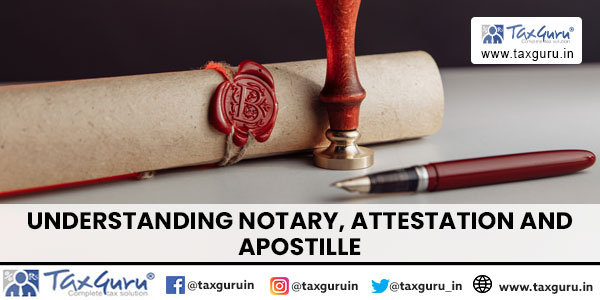Summary: Notary, Attestation, and Apostille are terms often used interchangeably for document verification, but they serve distinct purposes. A Notary Public is authorized to authenticate signatures and administer oaths within their jurisdiction, ensuring a document is legally valid for domestic use. Attestation, on the other hand, verifies the authenticity of a document for use in foreign countries that are not part of the Hague Convention. It is commonly required for commercial documents like contracts and powers of attorney. An Apostille is a certificate that authenticates a public document for use in countries that are part of the Hague Convention, such as birth certificates or educational degrees. The key distinction lies in their purpose: notarization is for domestic legal use, attestation is for non-Hague countries, and apostille is specifically for Hague Convention members. Understanding these terms is crucial when preparing documents for legal or international purposes to ensure compliance with the proper procedures.
Notary, Attestation, and Apostille are words used to confirm the authenticity of documents (may be personal, official or legal), and these words are often used as synonyms for each other but there’s a catch though they seem to be similar but there is difference. I have tried to simplify the terms with their use.
Notary
A Notary Public is an official authorized to administer oaths and authenticate signatures, their authority is given to them by the state in which they are commissioned. The official verifies the signature on the document and confirms the same with their sign, seal and stamp which guarantees that the document signatures are legally valid, having been carried out per local state law.

Notarization is typically used for domestic purposes and is limited to the jurisdiction of the country where the document is executed
Attestation
Attestation is the process of verifying the authenticity and accuracy of a statement, certificate, or document to ensure compliance with established standards, regulations, or legal requirements.
Attestation is the process of verifying the authenticity of a document for use in a foreign country that is not a member of the Hague Convention.
Attestation generally is necessary for commercial documents, such as contracts, invoices, and powers of attorney. It can be done by a third-party entity or an individual with the necessary expertise and authority.
Apostille
An apostille is an official certification authenticating the origin of a public document for use in foreign jurisdiction.
Apostilles are attached to the original document certifying and ensuring, that the certification will be accepted in any other countries that are signatories to the Hague Apostille Convention.
Apostilles are required for public record such as birth certificates, marriage certificates, and educational degrees.
Differences
The key difference between notary, attestation and apostille is that the purpose of Notarization is to render a document valid for legal operations or the court within the country, whereas attestation is often used for documents to be used in non-Hague Convention countries, and whereas apostille is specifically for countries that are part of the Hague Convention.
While preparing the documents for Legal or International purposes it is mandatory to understand these terms to ensure that you follow the correct process based on the requirements.




